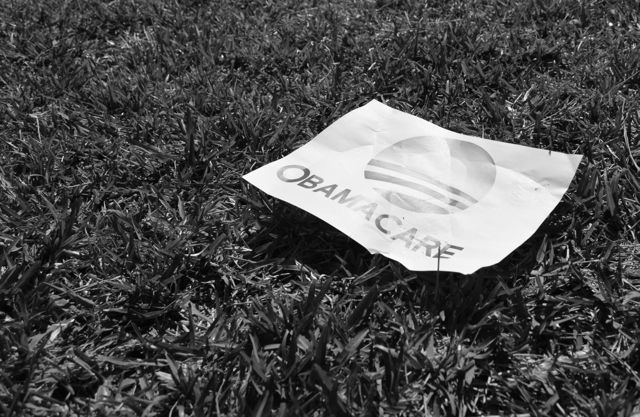By Hannah Bleau | gargoyle@flagler.edu

The media is packed with information on the new healthcare bill, commonly known as Obamacare. Despite the complexity of the law, new statistics are coming out suggesting that millennials are actually not signing up.
An informal Flagler College poll indicated that virtually no students have signed up under Obamacare, and only 20 percent consider signing up in the future. Despite the claims of the media and “academia,” college students are not excited nor seem to care at all about this new wave of government expansion. According to the survey results, over 68 percent of students are currently covered under their parent’s health insurance plans, and the others remain covered by work or the college. This poses a bigger question. Is this reflective of the mindset of college students through the nation as a whole?
This survey prompted many questions. Student comments varied. Some students said coverage under Obamacare was not adequate.
One student commented, “I feel that by adopting Obamacare, I will be encouraging a central healthcare monopoly.”
Another said, “From my understanding, the cost and restrictions involved are undesirable. I would prefer to purchase my healthcare independently.”
Ariel Peacock, Graphic Design major at Flagler College, also voiced her concerns.
“After seeing and hearing other people’s experiences, Obamacare works for them there and now, like at that moment, but then once they have it for a period of time, it ends up becoming more expensive and unclear- it pretty much ends up becoming more expensive and more of an issue in the future,” she said.
Another common complaint was the expense.
The cheapest basic plan on the government exchange for a 20-year-old male or female living in St. Johns County was $100 a month with a $6,350 yearly deductible. The millennial mentality is this: The deductibles are so high; it’s not worth it. In general, students go to the doctor for minor injuries like broken arms or legs, infections, or the flu. It’s cheaper to pay for that out of pocket or remain on a parent’s plan.
In addition, the cost of healthcare has drastically shot up the past few years. This is in direct contrast with what President Obama previously promised.
“I will sign a universal health care bill into law by the end of my first term as president that will cover every American and cut the cost of a typical family’s premium by up to $2,500 a year,” President Obama said.
Although premiums have been steadily on the rise for the past 30 years, there has been a remarkable spike in the last few.
A study conducted by the nonpartisan Kaiser Family Research Foundation and the Health Research and Educational Trust– reviewed by PolitiFact– found that premiums have increased 29 percent from 2008 to 2013. That percentage exceeds inflationary costs.
The bottom line is this: Students are not joining the government pool because it’s too expensive. It seems the only ones who are benefiting from this expansive healthcare reform are those with pre-existing conditions, but if young healthy individuals refuse to sign up, who will offset these new costs insurance companies are now forced to bear?
While most reports indicate that an estimated 8 million people have signed up under Obamacare, that number is a bit deceptive. The mainstream media refuses to mention this, but Obamacare contained a massive Medicaid expansion which meant more people could qualify for it. Nearly half of that 8 million are new Medicaid enrollees. The remaining numbers also contain people who already had insurance prior to the government mandate. From the limited information released, one can only assume the number of paying customers is very few.
Needless to say, the problem has not been solved. Who’s paying for all of this? If it’s on the shoulders of millennials, America’s healthcare system is in for a rude awakening.
The general consensus seems that health insurance is the last thing on college student’s minds. This poses a huge problem for Obama and his healthcare plan. Without healthy young people joining the pools to offset the costs, insurance companies could implode, and the system could collapse. Evidence of this threat is already surfacing.
Mark Bertolini, CEO of Aetna, voiced his concerns in a CNBC interview segment.
“Are they going to be double-digit [increases] or are we going to get beat up because they’re double-digit or are we just going to have to pull out of the program?” Bertolini said.
Even Aetna is facing problems with the government exchange. Not enough people are signing up to offset the costs of the new government mandated plans. Private insurance companies may be forced to file for bankruptcy. Strangely enough, deep in the thousands of pages of Obamacare, there are promises of bailouts for these insurance companies. It’s as if they knew this was going to happen.
It would seem as though the millennial excitement of the healthcare law was largely overproduced media hype. Students have other things on their minds. The majority of students are not interested in this new healthcare law, and even if they were, they cannot afford it anyways.
While the law is not in full effect, will the negative trends continue?
Students should take note of the broken promises and critically think for themselves. So far, so bad for the Affordable Care Act and its counterparts.
“If you like the plan you have, you can keep it. If you like the doctor you have, you can keep your doctor, too. The only change you’ll see are falling costs as our reforms take hold,” President Obama said.




Be the first to comment on "The Unaffordable Don’t Care Act"